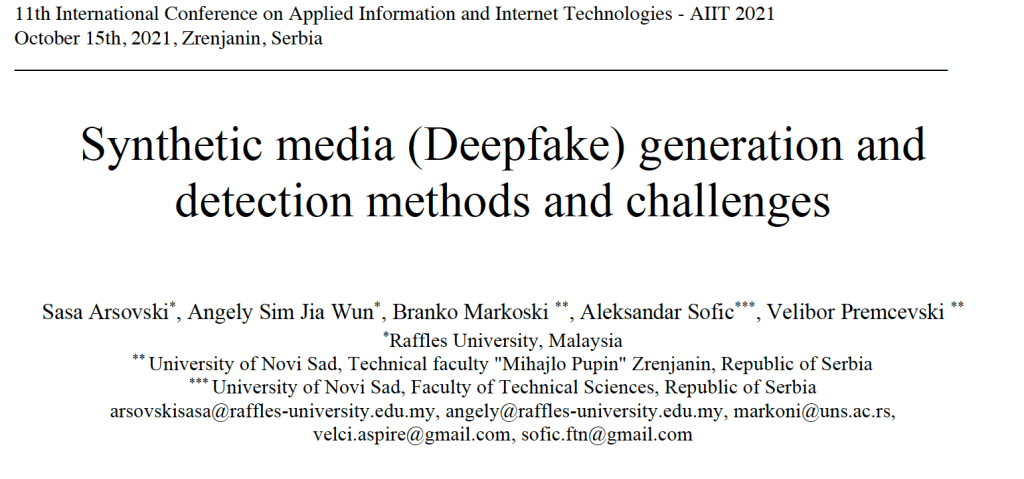Authors Name:
Sasa Arsovski*, Angely Sim Jia Wun*, Branko Markoski **, Aleksandar Sofic***, Velibor Premcevski **
Faculty of AI & Robotics
11th International Conference on Applied Information and Internet Technologies – AIIT 2021, 138-141.
Keywords: Synthetic media, Deep Neural Networks, Autoencoders, Machine Learning


Synthetic Media (Deepfake) Generation and Detection Methods and Challenges
Abstract
Synthetic media (Deepfake) are digital manipulations of an image/video in which a person and/or content of the media has been altered. Artificial Intelligence (AI) driven Deepfake can lead towards online disinformation, reduce trust in social media, and challenge online culture. Deepfakes can easily change viewer perception of truth in business or politics, so it is very important to develop models and strategies to improve their detection. In this paper authors will analyze latest state-of-the-art Deepfake generation and detection methods. The aim of the research that is presented in this paper is to detect and analyze disparity gap between Deepfake detection methods – machine learning and deep learning approaches used for binary classification and generative adversarial approaches used for Deepfake generation. From the results of our experiment, we can conclude that binary classifiers used for Deepfake detection are not reliable enough to properly generalize real-world data, thus Deepfake media still represent a high threat in online society, and new technological solutions are indispensable to counter this challenge.





